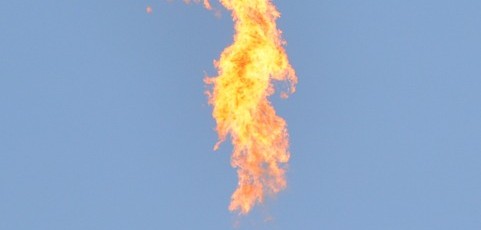In numerous industrial settings, flame detection is important in keeping employees safe from fires and explosions. Because of this, oil refineries, agricultural processing plants, nuclear facilities, and many others rely on fire detection solutions such as advanced flame detectors. Able to detect flames in areas where there are few if any people, these detectors are invaluable due to their versatility within different types of work environments.
Flame-Sensing Technology
One of the most important applications of a Triple IR flame detector is its flame-sensing technology. With its ability to monitor remote areas on a 24/7 basis, it’s able to be used to detect many different types of industrial fuels. Some of the most common fuels monitored by these detectors include:
–Diesel
–Gasoline
–Hydrogen
–Sulfur
–Jet Fuel
In addition to monitoring these gases and fuels for flames, the detectors also have the ability to distinguish actual flames and radiation emitted from sunlight, arc welding, lightning, or other sources. Thanks to this technology, the number of false alarms have greatly decreased, reducing productivity losses and costs.
Harsh Work Environments
Along with being able to detect flames from various sources, these detectors are also equipped to perform accurately and reliably in the harshest of work environments. For example, in such settings as engine test facilities and engine rooms, extremely high temperatures and levels of humidity can sometimes play havoc with obtaining accurate results. However, when it comes to flame detectors Sharpeye detectors have performed very well in situations such as these, prompting companies in many industries to install them at their facilities. In other situations, oil refineries may install these detectors near generators and storage tanks, allowing for 24/7 monitoring in remote areas that may be subject to shocks, vibrations, or high levels of dust or smoke.
Data Analysis
In situations where flames are detected, it’s vital that the detectors installed on the premises be able to provide instant data analysis to management personnel as well as emergency personnel who may be located in a nearby monitoring center. To ensure the best decisions are made, these detectors send data in real-time, enabling personnel who are on or off-site to make quick decisions that can help save lives. Along with this, detectors and other equipment may be able to be remotely calibrated, helping them to provide reliable data under the worst of circumstances. And then once the situation is deemed safe, management can analyze the results and look for important ways to make changes that will result in improved safety levels.
No matter what application is needed by your business, GDS has the flame sensing equipment that can make your work environment as safe as possible. By being able to protect the lives of employees as well as the large investment in equipment, you’ll have peace of mind knowing you have detectors considered to be the best in the industry. To speak with a knowledgeable and experienced applications engineer, contact GDS and learn which type of detector will work best for your company.

